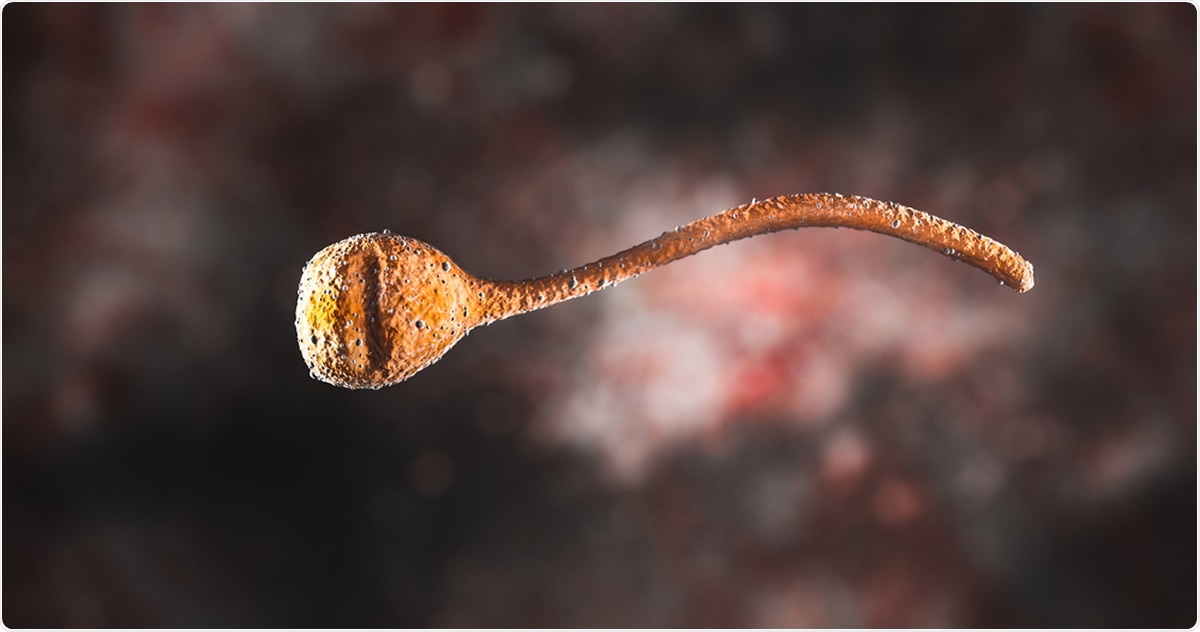Among the sexually transmitted infections (STIs), bacterial vaginosis affects more than 20 percent of women across the globe. The condition stems from the proliferation of certain bacteria in the vagina.
Previous studies have pointed out that the reproductive microbiomes of partners might be exchanged in bacterial vaginosis (BV). Now, a team of researchers at the University of Illinois in Chicago compared the microbiota of couples before and after the development of BV.
Published in the open-access journal Frontiers in Cellular and Infection Microbiology, the research shows that men's microbiota has a role in the onset of bacterial vaginosis and the microbiome in the penis can help predict if their female partner will have the infection.

Bacteria Corynebacterium is a genus of bacteria that are Gram-positive and aerobic. They are bacilli, and in some phases of life they are, more particularly, club-shaped. Image Credit: CI Photos / Shutterstock
The study
To arrive at the findings of the research, the team assessed the link between penile microbiota composition and bacterial vaginosis onset. The team examined 168 Kenyan couples wherein the women did not have BV at the onset of the study.
Over the course of a year, more than 31% of the women developed BV. While the overall microbiota composition was different from man to man. The researchers discovered that there is a direct correlation between the composition of a man's penile microbiota and the occurrence of BV in his female partner later in the year.
The study findings hint that the nature of the penile microbiome could become an accurate predictor of BV incidence in women.
The study findings can help many women who experience BV and has recurrent bouts. Being able to predict BV occurrence in female partners can help in treating the condition.
"Antibiotic treatment of BV has limited long-term success, with up to 50% of women having recurrence within six months, so we need more effective approaches to treatment. Male sex partner treatment may be a new strategy" Dr. Supriya D. Mehta, an epidemiologist at the University of Illinois at Chicago, first author of the study, said.
This means that treating both the male and the female can help to eradicate better the risk of BV, which can be challenging to treat.
"These results suggest interventions to manipulate the penile microbiome may reduce BV incidence in sex partners, and that potential treatment (antibiotic or live biotherapeutic) will need to be effective in reducing or altering bacteria at both the glans/coronal sulcus and urethral sites (as represented by the meatus)," the researchers concluded in the study.
"The temporal association clarifies that concordance of the penile microbiome with the vaginal microbiome of sex partners is not merely reflecting the vaginal microbiome, but can contribute to it," they added.
What is bacterial vaginosis?
Bacterial vaginosis is the most common vaginal condition in women between 15 and 44 years old. Caused by a change in the healthy balance of vaginal microbiota, the infection may lead to severe consequences in pregnancy, and it also heightens the risk of other STI's, including the human immunodeficiency virus (HIV) infection, herpes simplex virus, gonorrhea, or chlamydia.
BV can also contribute to preterm birth. In pregnant women, the condition is tied to premature deliveries and having low-birth-weight infants. Further, BV can lead to other complications, such as infection risk after gynecologic surgery, and pelvic inflammatory disease (PID), an infection of the uterus and fallopian tubes, which can heighten the risk of infertility.
BV is linked to an imbalance of the good and harmful bacteria that usually thrive in a woman's vagina. Having a sexual partner, multiple sexual partners, and performing douching can alter the balance in the vaginal microbiome, leading to the proliferation of the harmful bacteria.
The common signs and symptoms of BV include a foul-smelling "fishy" vaginal odor, a thin gray, white or green vaginal discharge, itching in the vagina, and a burning sensation when urinating.
In the United States, about 84 percent of the women found to have BV reported no symptoms. Those who have not had any form of sexual intercourse can still be affected by BV, even pregnant women. Also, the prevalence of BV increases based on the lifetime number of sexual partners.